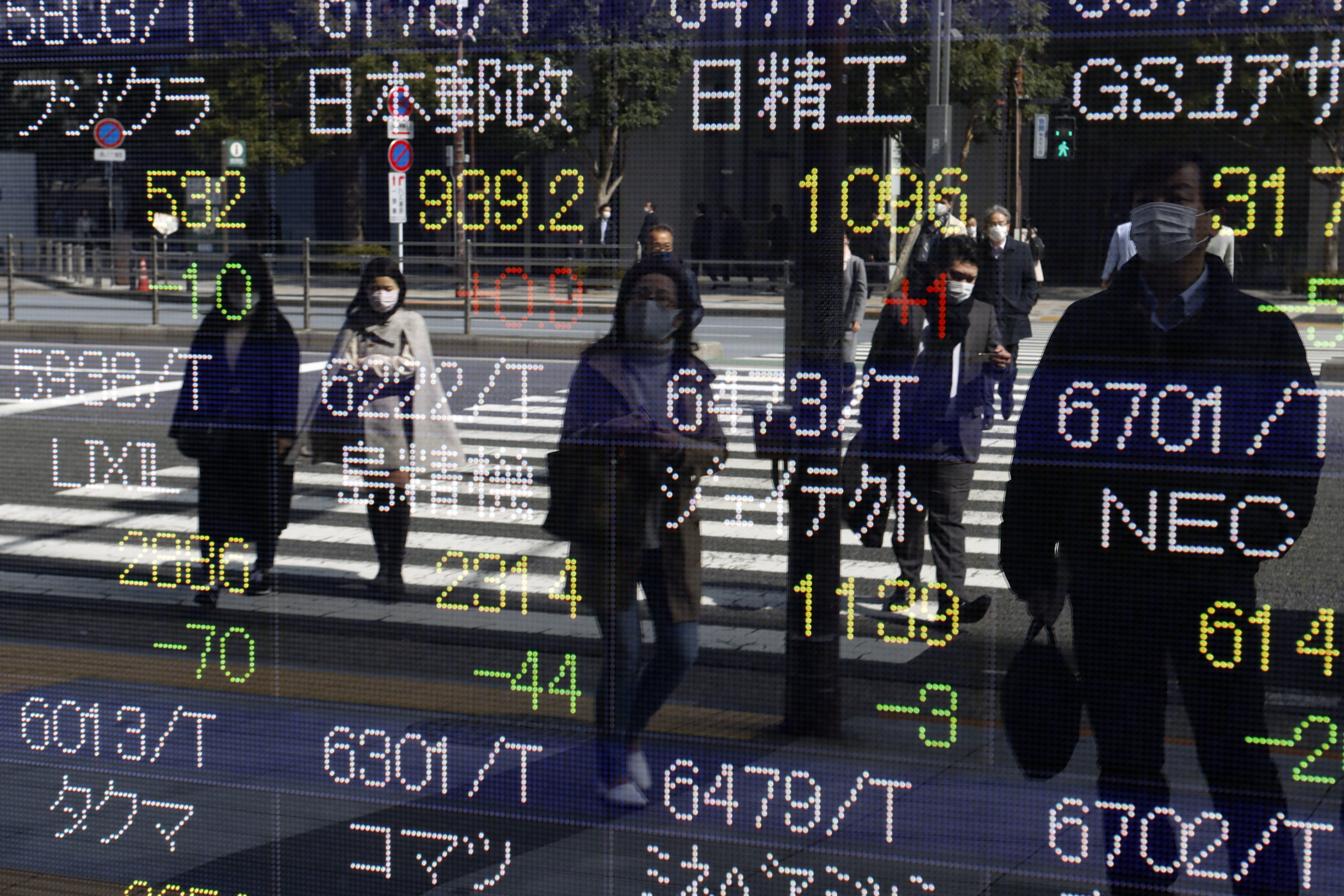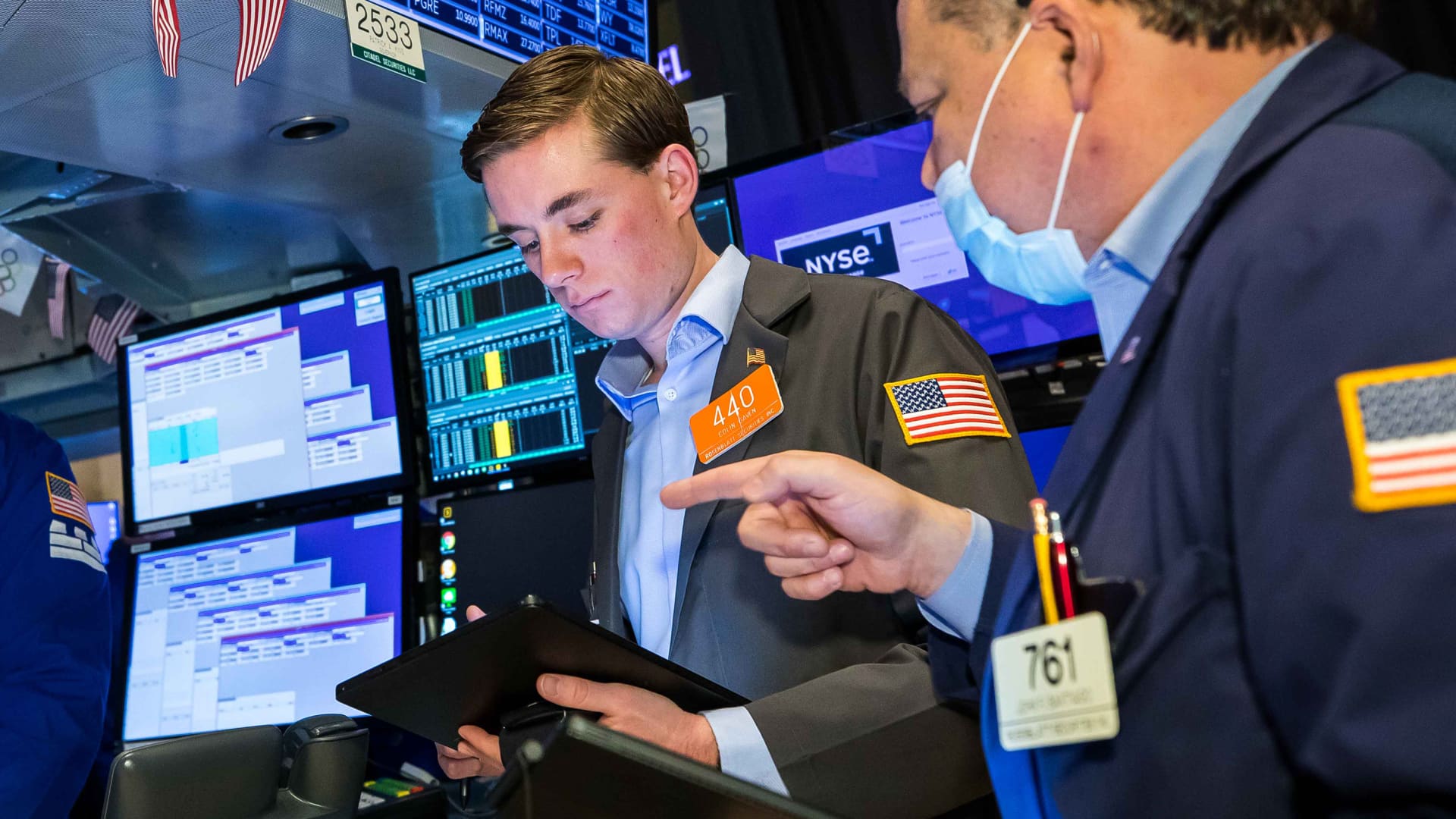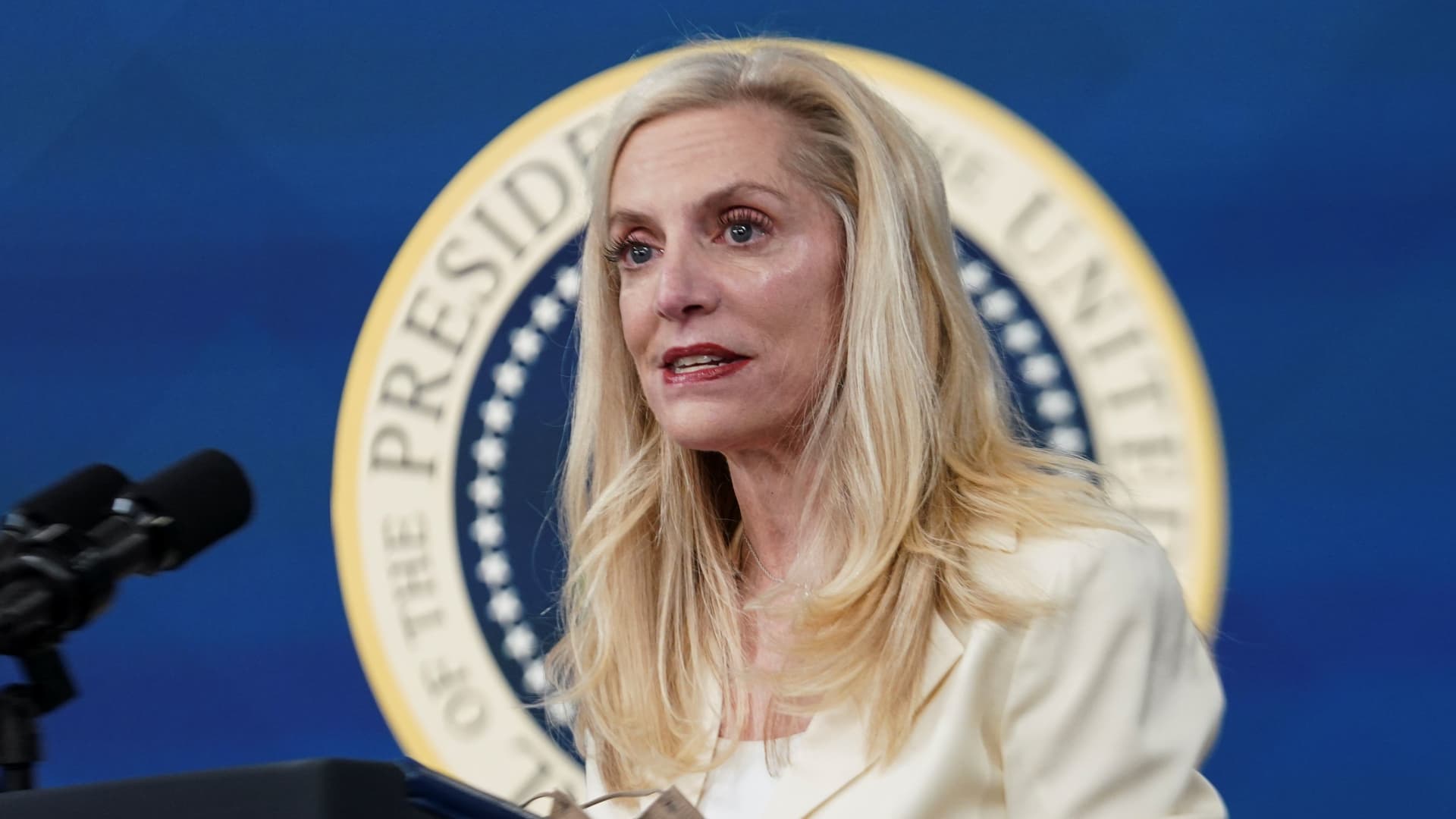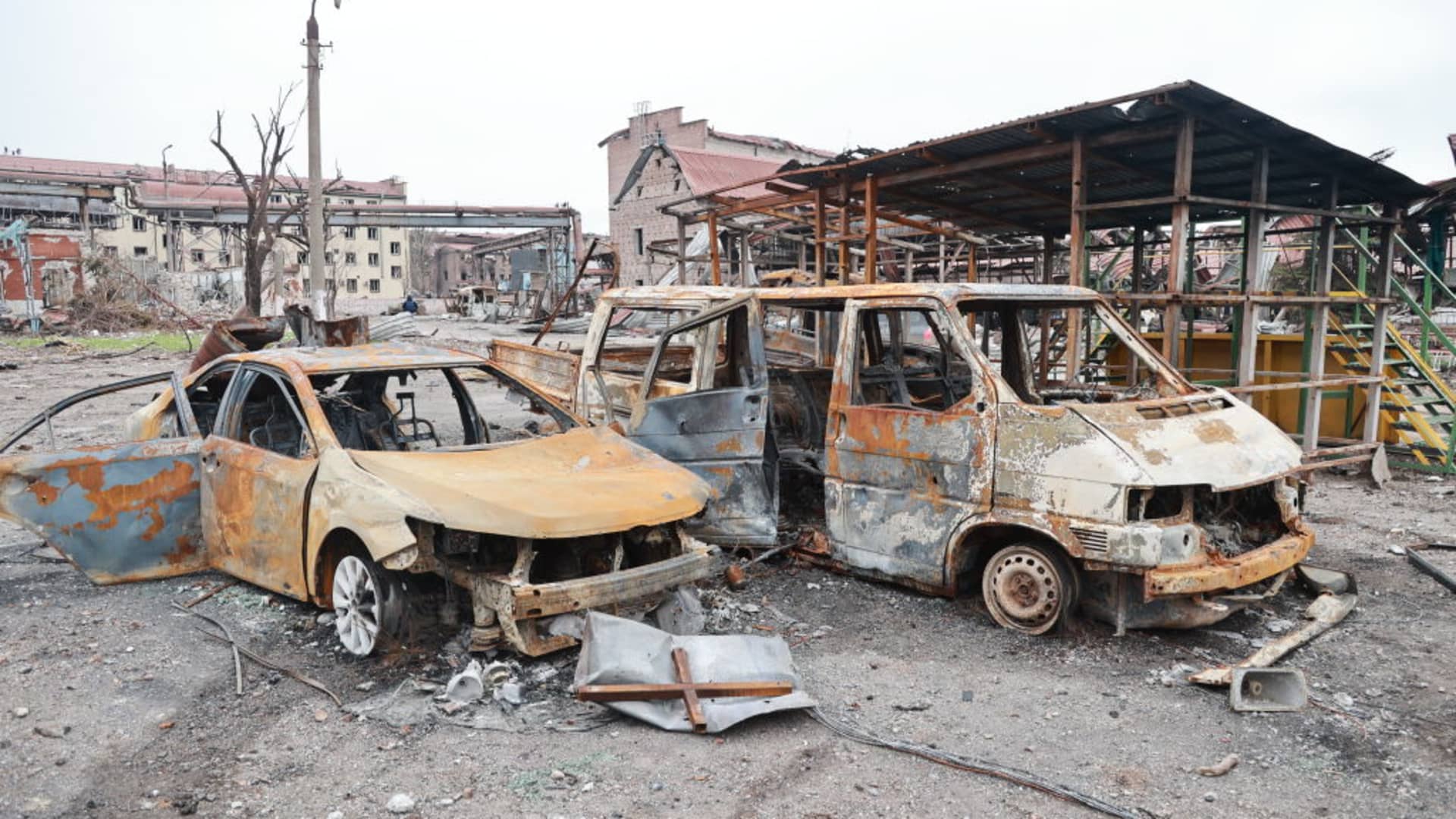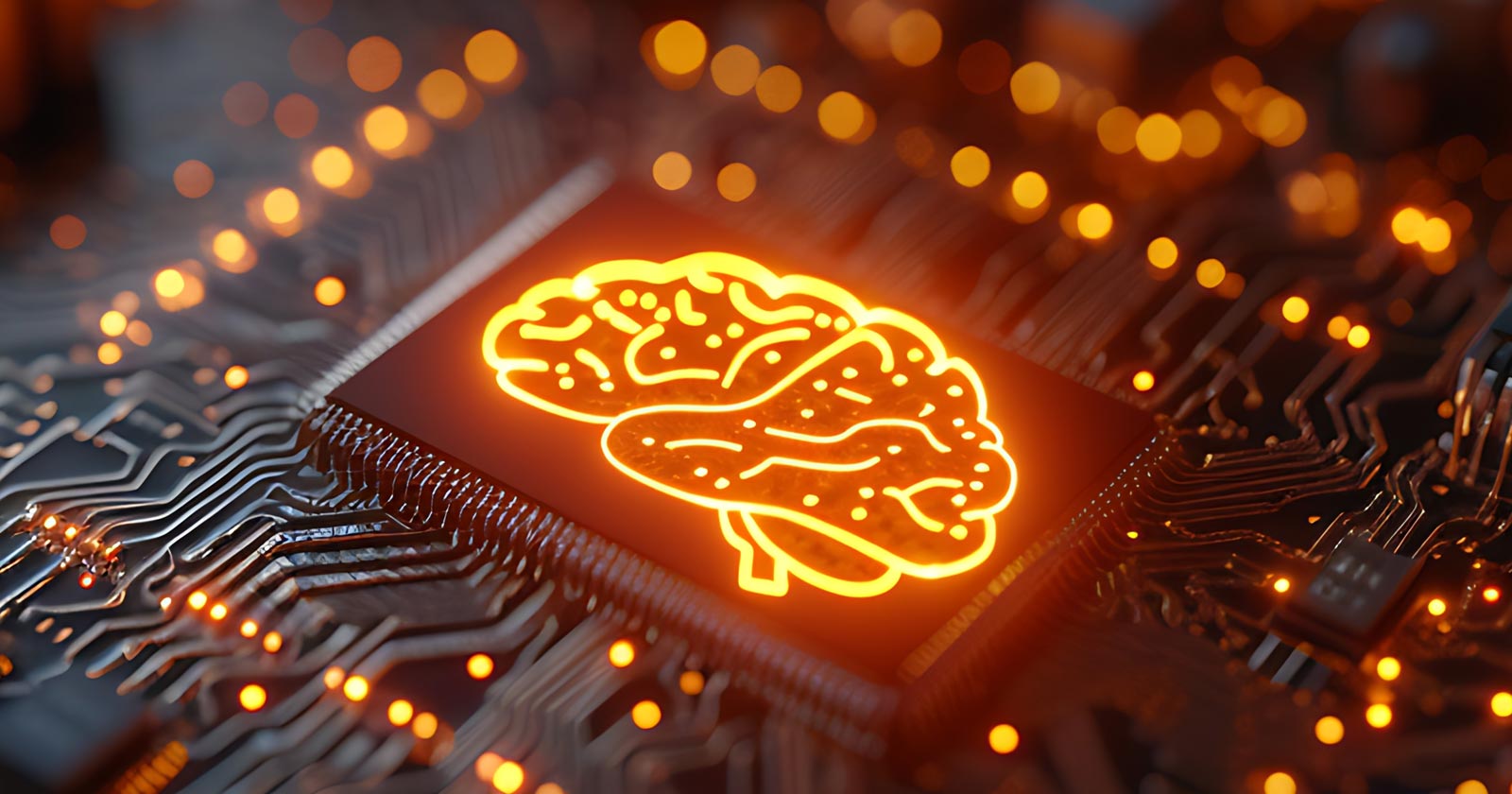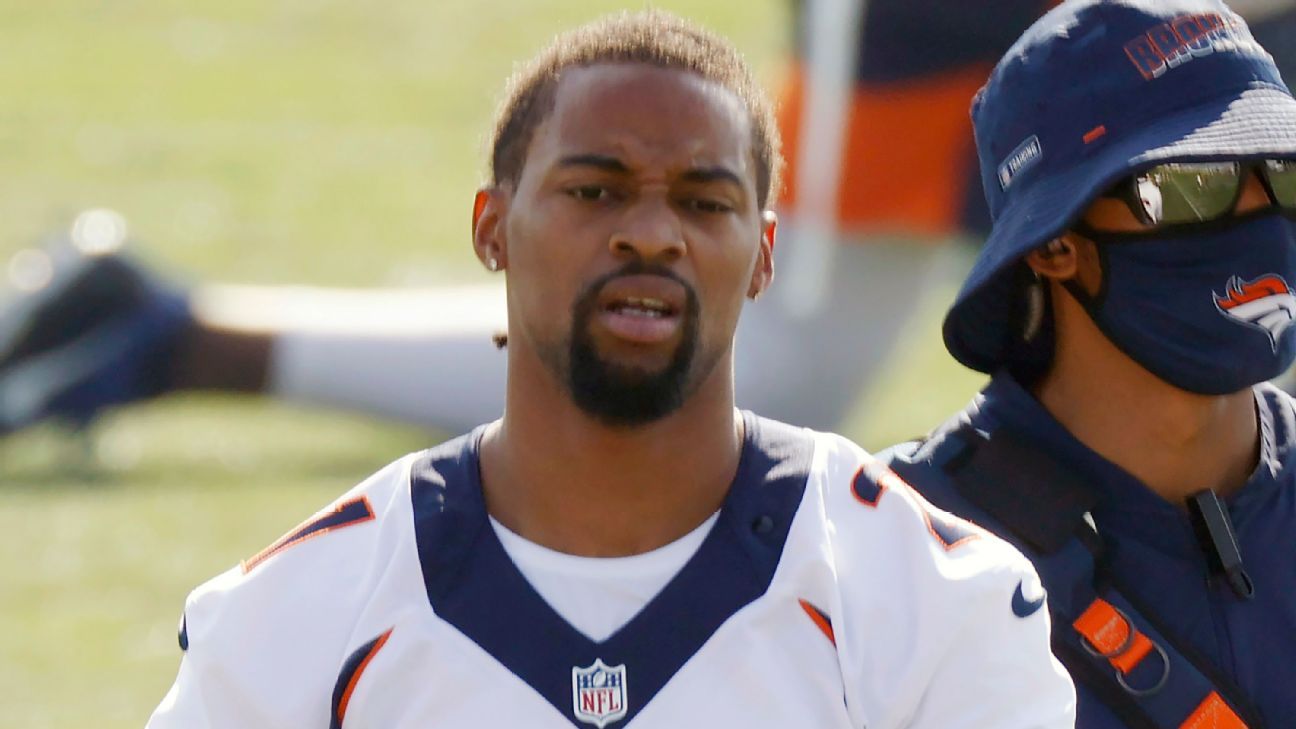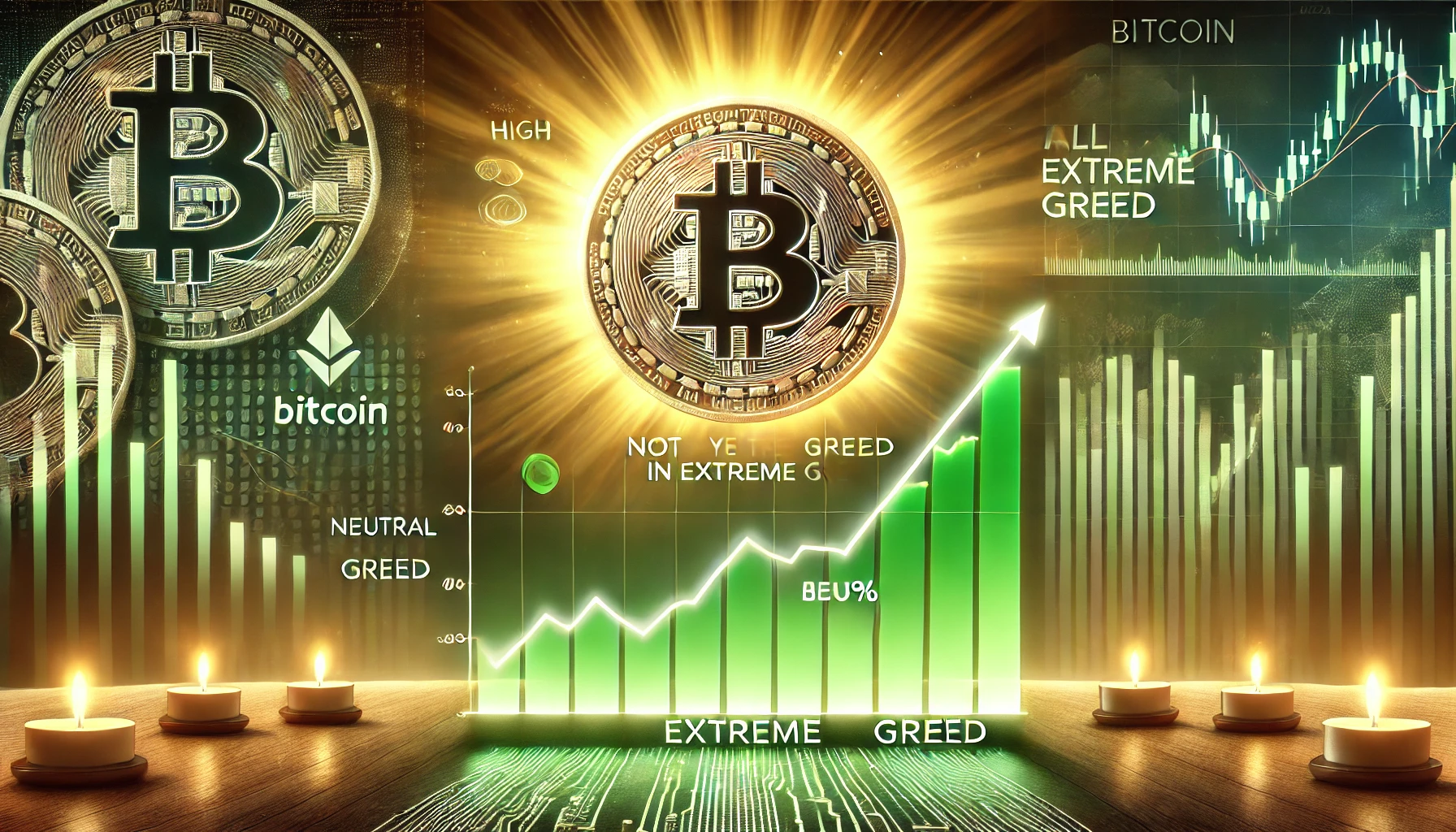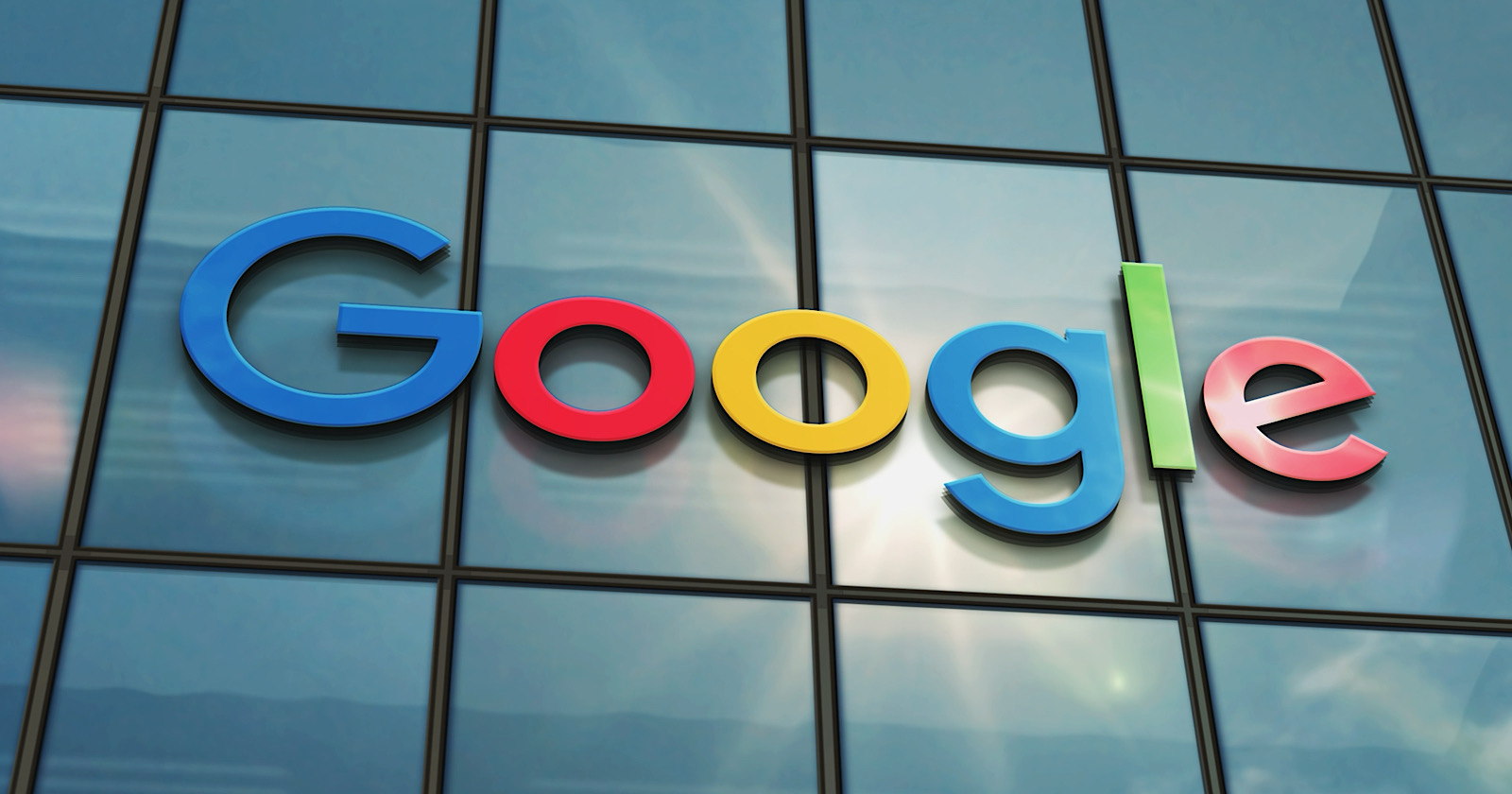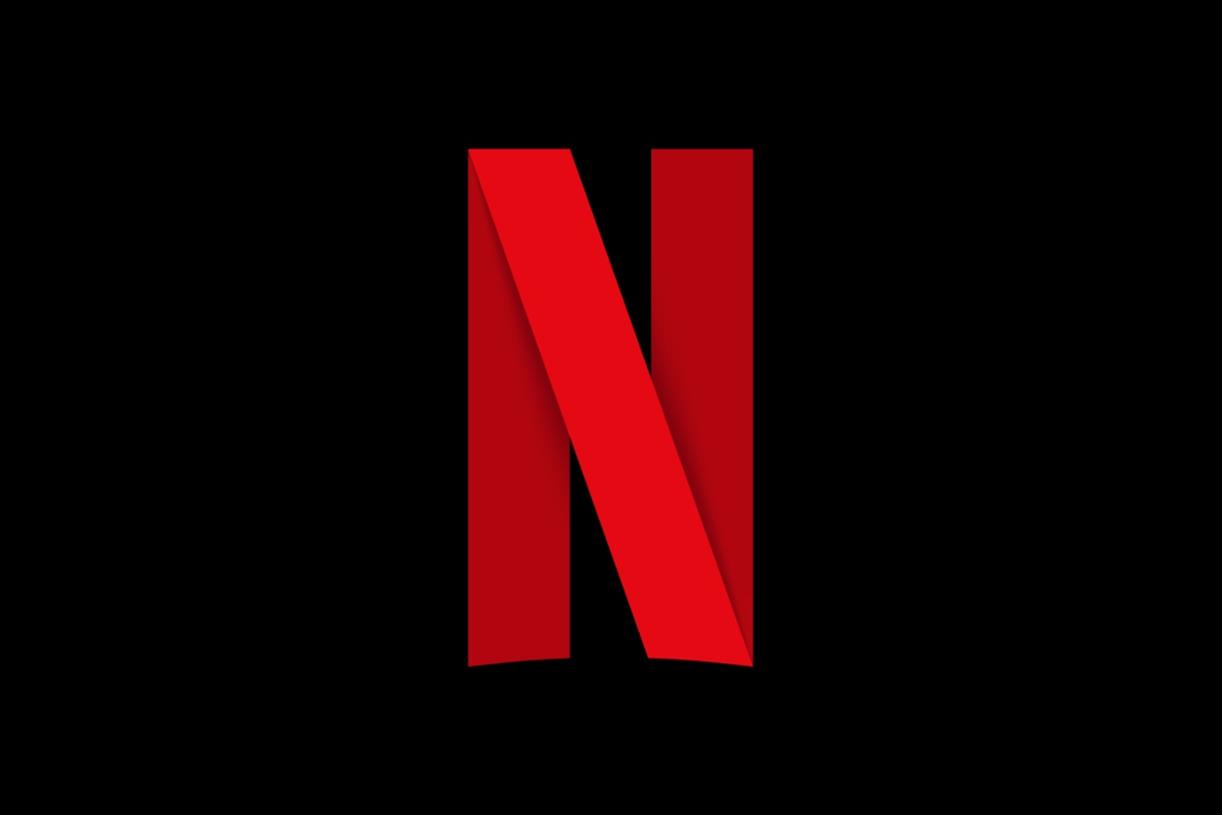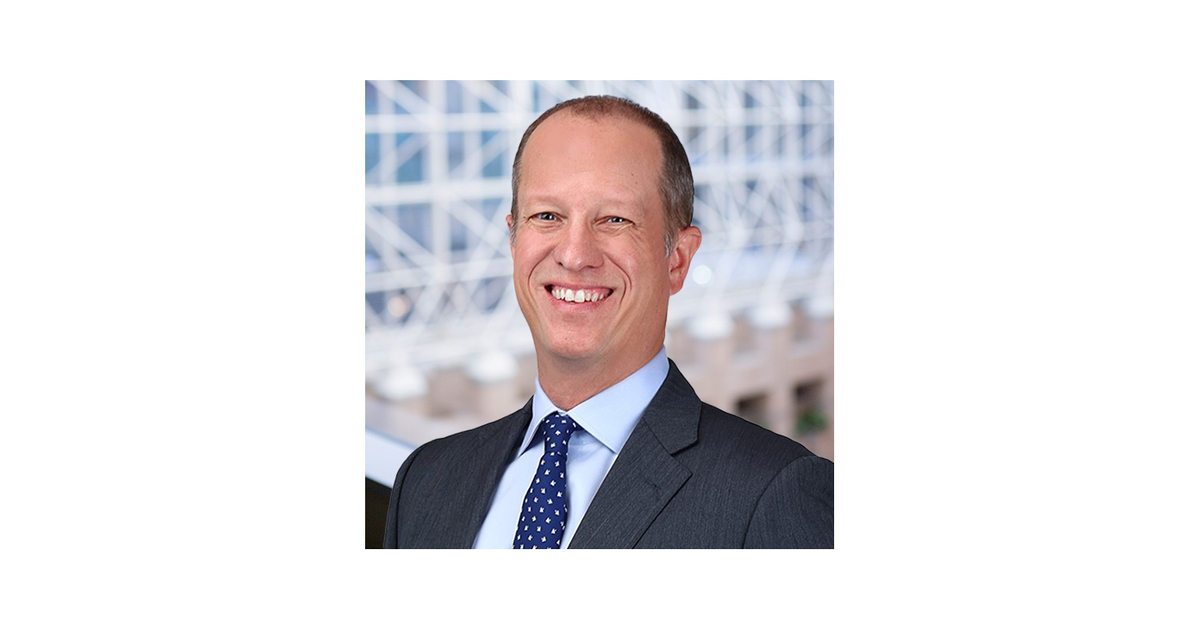Ray Dalio says none of China's new leadership team appear to be 'extremists'
Billionaire Ray Dalio said while he's less familiar with China's new leadership team than prior officials, he expects worries about their policies are overdone.
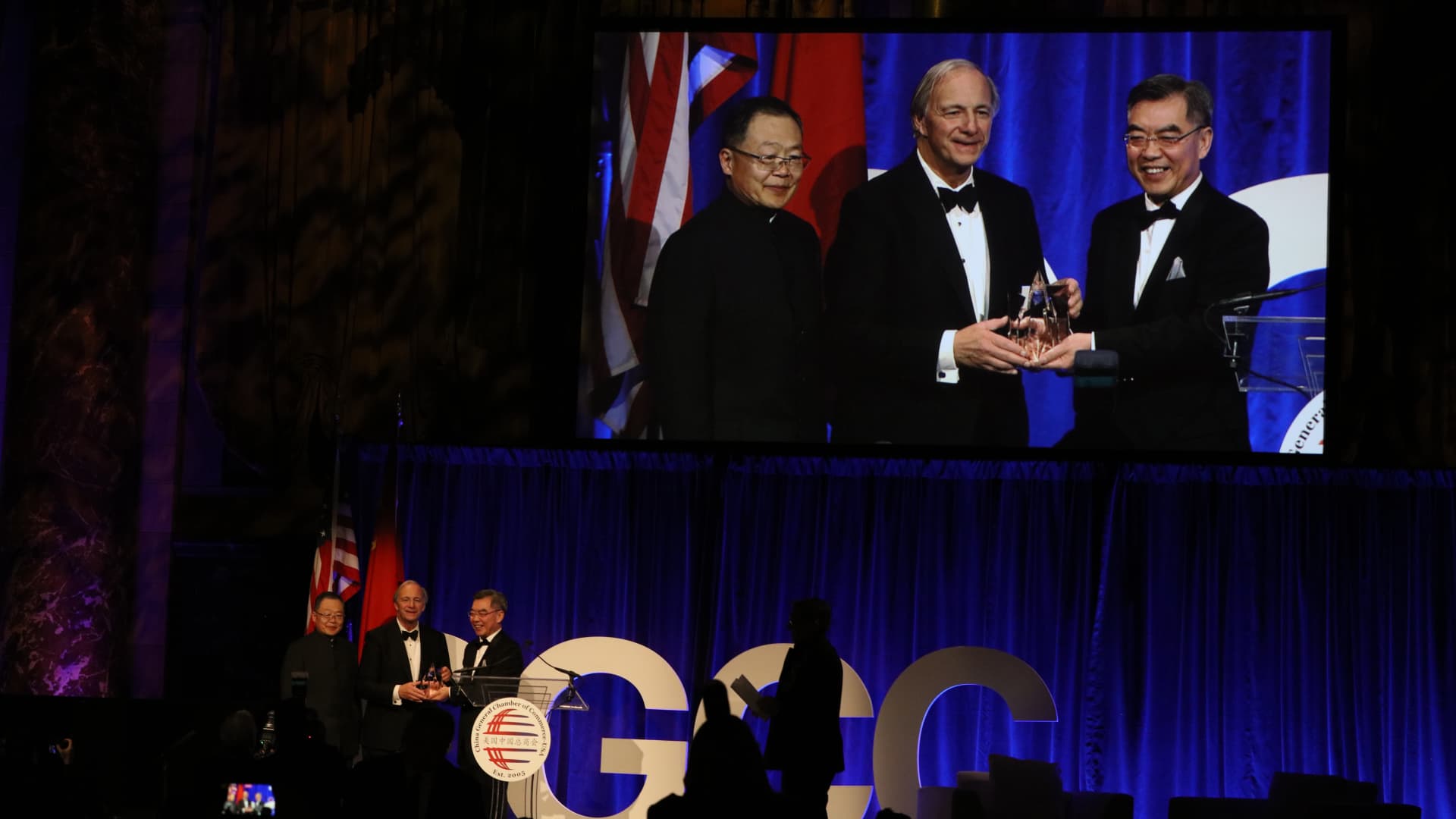
Ray Dalio, founder of Bridgewater Associates, received an award from the China General Chamber of Commerce-USA in February 2022.
China News Service | China News Service | Getty Images
BEIJING — American billionaire Ray Dalio said while he's far less familiar with China's new leadership team than prior officials, he expects worries about their future policies are overdone.
That's according to a Nov. 16 post on LinkedIn that covered his outlook for China's economy and policy.
Here are the highlights:
China's leadership reshuffle
"I want to emphasize that none of the new people appear to be extremists," Dalio said. "How these policy makers will balance the trade-offs and regulate is now unknown and probably imagined to be more dangerous than whatever they will actually do."
In October, the ruling Communist Party of China paved the way for President Xi Jinping to take on an unprecedented third term, while packing the core leadership team with his loyalists.
"The people being added are loyal strongmen who appear to be capable and have demonstrated track records of being willing to do the unpopular things," Dalio said.
He said he's been told that Li Qiang — who is expected to become the next premier — "is very capable and pro-business, but I don't know him personally so I don't feel confident enough to say anything valuable about what he is like or what he wants."
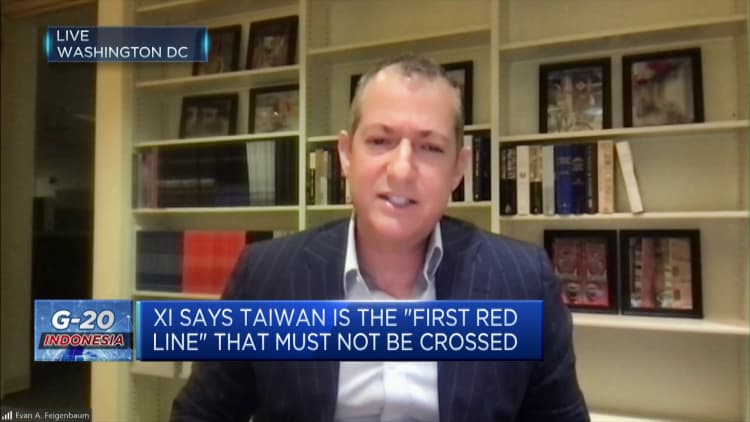
"I am told that He Lifeng will likely be Liu He's replacement and is likely to be less austere, as his track record is in building infrastructure financed by debt," Dalio said.
He Lifeng currently heads the economic planning agency, the National Development and Reform Commission. Liu He, a vice premier, has led trade talks with the U.S., while heading the financial stability committee.
Dalio said the leadership changes mean most of the people he knew who were "reformist-globalists" are being replaced. He noted he hasn't visited China since the pandemic began.
"When the Xi government first came to power, I personally knew most of those who ran the economy under Xi well enough to know what they wanted and what they were like," Dalio said.
Read more about China from CNBC Pro
The billionaire stepped down this year as co-chief investment officer from the hedge fund he founded, Bridgewater Associates. The firm has a subsidiary in China.
As of the quarter ended Sept. 30, Bridgewater had about $1.2 billion invested in Chinese stocks, mostly U.S.-listed names such as Baidu, Dada Nexus and Pinduoduo, according to a filing with the U.S. Securities and Exchange Commission.
In his post this week, Dalio said his observations drew upon 38 years of "intimate contacts" with people in China and his research of the country's history going back to the Qin Dynasty about 2,200 years ago.
Overhang of war
Dalio warned that the possibility of conflict with China will be an overhang for markets and economic activity in coming years, even if war never actually breaks out.
"I have heard that in a new Republican-controlled House there is some possibility there will be a bill passed supporting the independence of Taiwan, which would be for the Chinese tantamount to a declaration of war and would very likely lead to some sort of military conflict with China," Dalio said.
"Obviously the reality of [war] would be disastrous," he said. "The good thing is that sensible people, who are still most people in power, understand that this would be terrible."
This week, Xi and U.S. President Joe Biden met in person for the first time since Biden took office. Many analysts saw the meeting as positive for the bilateral relationship, which has grown increasingly strained in recent years.
Real estate and the economy
China's real estate debt problems and their spillover "into the bones of the economy" is one of the biggest challenges for the country, Dalio said, noting that real estate accounts for about a quarter of the economy and 70% of wealth.
He expects China can handle the situation, but it will take at least two or three years. "Even then, it will leave some scars, which will likely be more good than bad in the long run because the lessons will stick," he said.
Dalio also said just removing China's stringent Covid controls won't necessarily make the economy stronger right away.
"Because the old people are vulnerable and not protected and because the medical system is not prepared to adequately handle lots of old people with COVID, this is not an easy problem to solve, though it can be handled in a more targeted way, which is in the works," he said.

 JimMin
JimMin 








